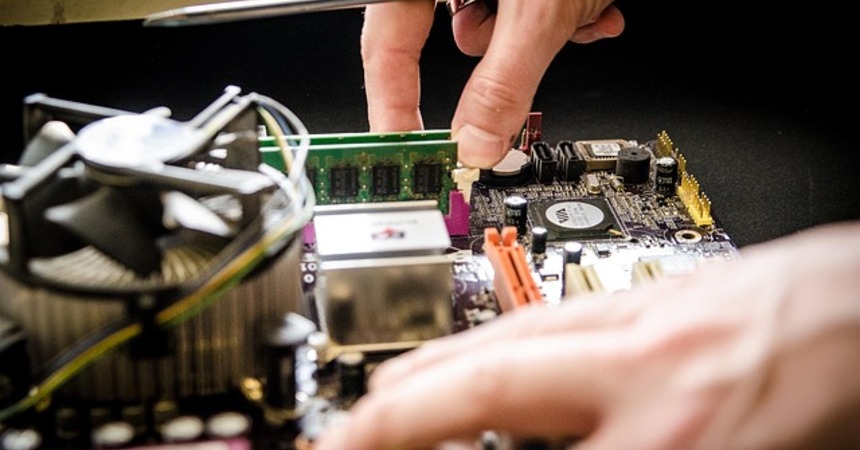CERTIFICATION OF RADIO FREQUENCY DEVICES IN THE CUSTOMS UNION STATES
It is well known that the member states of the Customs Union have adopted a unified system of goods certification (the EAC certification system) and that compliance documents issued in one of the states (Russia, Kazakhstan, Belarus, Armenia or Kyrgyzstan) will be valid throughout the territory of the Customs Union.
It should be noted, however, that this rule does not apply to all areas of non-tariff regulation. The fact is that harmonising technical regulations across all of the Customs Union's member states is a time-consuming process.
Currently, there are just over 40 technical regulations that have been approved and are in effect. However, it is important to note that the use of the radio frequency spectrum and safe operation in public access networks are not regulated by the CU states' common legislation, but rather by the legislation of each member state.
If you want to certify an electronic device that operates in a public network and/or transmits data via wireless data transmission technologies, you will need to assess the product's technical safety within the framework of the Customs Union (e.g., EMC and general LVD safety) and get permission from the government authorities that regulate the use of the radio frequency spectrum and public network in each country where delivery is planned.
Here are some examples:
I. CERTIFICATION OF RADIO FREQUENCY MODULES IN THE RUSSIAN FEDERATION
When we talk about certification of radio frequency devices in Russia, we mean that the products may require the following documents:
- A conclusion from the Radio Frequency Centre (Radio Approval - RFC Conclusion)
- Declaration or Certificate of Compliance for the rules of Communication Equipment (Telecom approval)
- FSS notification.
CONCLUSION FROM THE RADIO FREQUENCY CENTRE
Some radio frequency devices may be imported without documents from the Radio Frequency Centre. This article contains a list of these devices .
If a device requires a conclusion from the Radio Frequency Centre (RFC Conclusion), you shall be aware that only the final product is tested, as the product characteristics, such as radiated power, depend on the final product set, for example, with or without antennas. As a result, you may only obtain RFC Conclusion for the final product.
COMMUNICATION EQUIPMENT COMPLIANCE VERIFICATION DOCUMENTS
The situation is similar when obtaining a communication equipment declaration/certificate of compliance (Telecom approval documents). This document is issued for a specific model of the final product. Since there have been a lot of inquiries on this issue, we sent a letter to the Ministry of Digital Development requesting clarification on the possibility of approving a module.
The official response was as follows:
A communication equipment manufacturer must provide legally valid documentary validation that the power supply, antenna and feeder line, and signal interfaces of the communications module meet the relevant requirements. Such validation is possible if a test report that validates the compliance of the final device which includes the communication module is attached to the validation documents of the declaration of compliance.
FSS NOTIFICATION
Product testing is not required for the FSS notification, but it is also issued for the final product. When submitting an application, we disclose all cryptographic algorithms used. Of course, you can refer to a previously registered module FSS notification in the application, but the customs service will check for the presence of a notification for the final product.
By the way, the FSS notification is a standardised document that is recognised in any of the Customs Union member states. Each state has a single government agency in charge of state security and, accordingly, the distribution of products capable of encrypting data. In Russia, this is the Federal Security Service (FSB); in Kazakhstan, it is the National Security Committee (NSC), etc.
II. CERTIFICATION OF RADIO FREQUENCY MODULES IN BELARUS
The use of radioelectronic equipment in Belarus is governed by the technical regulations of the Republic of Belarus TR RB "Telecommunication equipment. Security" (TR 2018/024/BY). This regulation specifies two types of compliance verification: Declaration of compliance and Certificate of compliance.
The final compliance documents specify the final product; however, it is possible to test only the embedded module. This only makes the logistics process easier (shipping and customs clearance of samples for testing). The option of submitting a module for testing is considered on a case-by-case basis.
Approval of the module in other Customs Union member states (Kyrgyzstan, Armenia and Kazakhstan) is not possible for the same reasons as in Russia and Belarus: compliance documents for the final product to be imported into the destination country are required.
The WWBridge team is eager to provide the most detailed advice and implement a project to obtain the necessary permits, regardless of the procedure's complexity or the need to interact with a large number of government agencies in the certification of radio frequency devices. We also work on radioelectronic product certification projects in Ukraine, Uzbekistan, Azerbaijan and other CIS countries.
Please send your inquiries to [email protected].
When sending inquiries, please add a brief description of the product, such as the functionality, frequencies used and transmitter power, as well as the Commodity Nomenclature of Foreign Economic Activity (CNFEA) code. We will be happy to have you as a customer.
Read more articles about the certification:
The sequence of issuing documents for radio frequency devices: FSS notification, RFC, TR CU declaration / certificate, telecom
The driving video recorder with BT and GPS functions: the FSS Notification case
By Viktoriia Artemenko
Head of Certification Department
